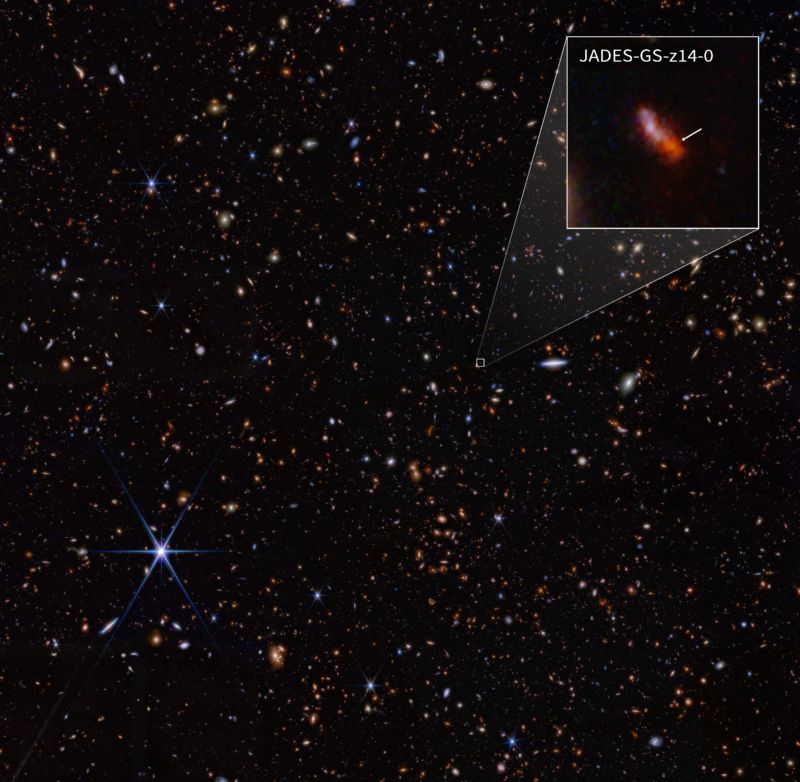
Good morning. It's June 1, and today's photo comes from the James Webb Space Telescope. It's a banger.
This telescope, launched 18 months ago now, had as one of its express goals to deliver insights about the early Universe. The most straightforward way of doing so is to collect the faintest, most distant light that has spent the longest time traveling to reach Earth.
In some eye-opening new results, the telescope has found and confirmed the discovery of a very bright galaxy that existed just 300 million years after the Big Bang. Based on their observations, astronomers believe the galaxy is 1,600 light-years across and has a mass several hundreds of millions of times the mass of the Sun.
The galaxy may not have the catchiest name—it's JADES-GS-z14-0, after the JWST Advanced Deep Extragalactic Survey program—but in every other way, it's a remarkable find.
“All of these observations, together, tell us that JADES-GS-z14-0 is not like the types of galaxies that have been predicted by theoretical models and computer simulations to exist in the very early universe," the astronomers said. "Its discovery has profound implications for the predicted number of bright galaxies we see in the early universe."
Source: NASA, ESA, CSA, STScI, Brant Robertson (UC Santa Cruz), Ben Johnson (CfA), Sandro Tacchella (Cambridge), Phill Cargile (CfA)
Do you want to submit a photo for the Daily Telescope? Reach out and say hello.
reader comments
156